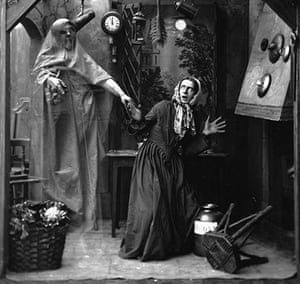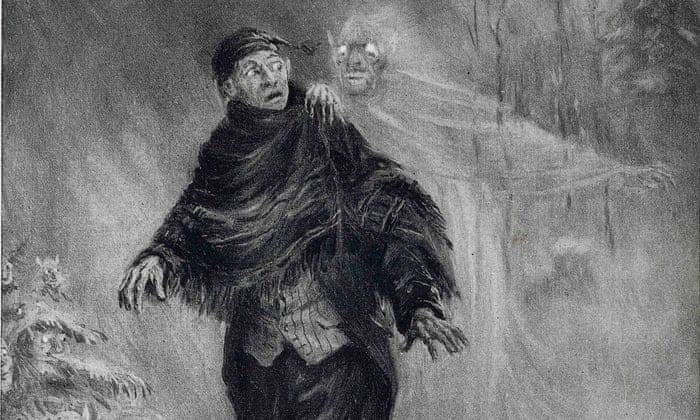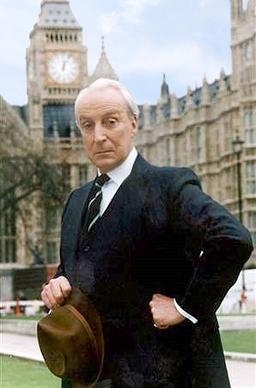We've all read a book, or watched a movie, one which we actually enjoyed, but later went... "Wait a second. What about???"
And I 'm not talking about tropes, which are everywhere, ranging from "meet cute" to "discussing highly confidential secrets while an evil person is standing right outside the door listening" to "the supervillain who is always one step ahead of the detective, spy, superhero*" to "the genius detective who is never wrong." You can either stand them or not, and it's usually based on who's playing the part.
BTW, Allan Rickman could play either the supervillain or the romantic hero and I was always all in for it.
No, I'm talking about plot holes, the size of my father's 1955 pink and white Buick, where you just shake your head. And again, you either accept it or you don't...
The Woman in White by Wilkie Collins has two plot holes, but I still love it with a passion. It has tremendous suspense, one of the great villains of all time (Count Fosco), secret illegitimacy, faked deaths, mental asylums, an evil mother (Mrs. Catherick), an innocent heroine cruelly treated (Laura Fairlie), an even more innocent victim who dies (or is killed?), a dauntless hero, a dauntless heroine (Laura's half sister, Marian Halcombe) and enough twists and turns to keep anyone happy and thinking. A nice, long winter's read. But, the plot holes:
The plot turns on wealthy heiress Laura Fairlie's remarkable resemblance to a mentally ill young woman (Anne Catherick), and how, after her marriage, where she becomes Lady Laura Glyde, she is drugged and placed in a mental asylum under Anne's name, while the exceedingly ill Anne dies (or is helped along the way) and is buried under Laura's name.
First Plot Hole: "The most well known error of chronology is that first described in The Times of 30 October 1860. The plot relies on the fact that Laura’s departure for London took place the day after Anne Catherick had died under Laura’s name. In the book edition the date of that death was 26 July whereas as the reviewer points out ‘…we could easily show that Lady Glyde could not have left Blackwater Park before the 9th or 10th of August. Anybody who reads the story, and who counts the days from the conclusion of Miss Halcombe’s diary, can verify the calculation for himself.’" (The Wilkie Collins Society)
This was eventually corrected, but not until the fourth edition of the novel - and then the correction interfered with later dates in this tightly woven, complex novel. Those of us who love the book have learned to live with it, and ignore all, including the second plot hole:
Second Plot Hole: Long after Lady Laura has been rescued from the mental asylum she and her true love Walter marry, but before her identity as Lady Laura has been confirmed and reinstated by the law. So what name did she get married under? Was it truly legal? We are never told.
There is a similar problem in Charles Dickens' Our Mutual Friend. Bella Wilfer marries John Rokesmith - however John Rokesmith is actually John Harmon, using an alias, which leads to the obvious question, how could their marriage be legal since he married under a false name, and did they remarry once John Harmon revealed himself?
All I can say is, just ignore it and keep reading.
The Big Sleep - the movie, not the book. The book, of course, was written by Raymond Chandler. The movie was written by Leigh Brackett, William Faulkner, with touch-ups by Jules Furthman and Howard Hawks.
Plot Hole: The legendary "who killed the chauffer?" (whose death starts the whole movie and investigation) is unanswerable. None of the writers knew; so Hawks cabled Raymond Chandler, who said later, "They sent me a wire ... asking me, and dammit I didn't know either." (Wikipedia)
Death on the Nile by Agatha Christie.
Plot Hole: Both the book and the movie have a fatal flaw: why kill the maid? Yes, the maid is blackmailing the killer, but the killer has money, and they're on a steamer on the Nile. Why not just pay the maid off, and keep paying the maid off for a few months, and kill her later when everyone's back home and no one will notice if the maid, for example, gets a little blood poisoning from a scratch and dies of it, or just plain disappears? Obviously, the only reason was that Ms. Christie (whom I revere in many ways) had made such a complex, ironclad plot that it was the only way to make it possible for Hercule Poirot to solve the case.
And right there is a lesson for us all: don't make your plot so tight you can't find a way out of it. Leave room for errors and basic screw-ups, because we humans do that all the time.
For that matter, leave room in your life for basic screw-ups, because they will happen.





















